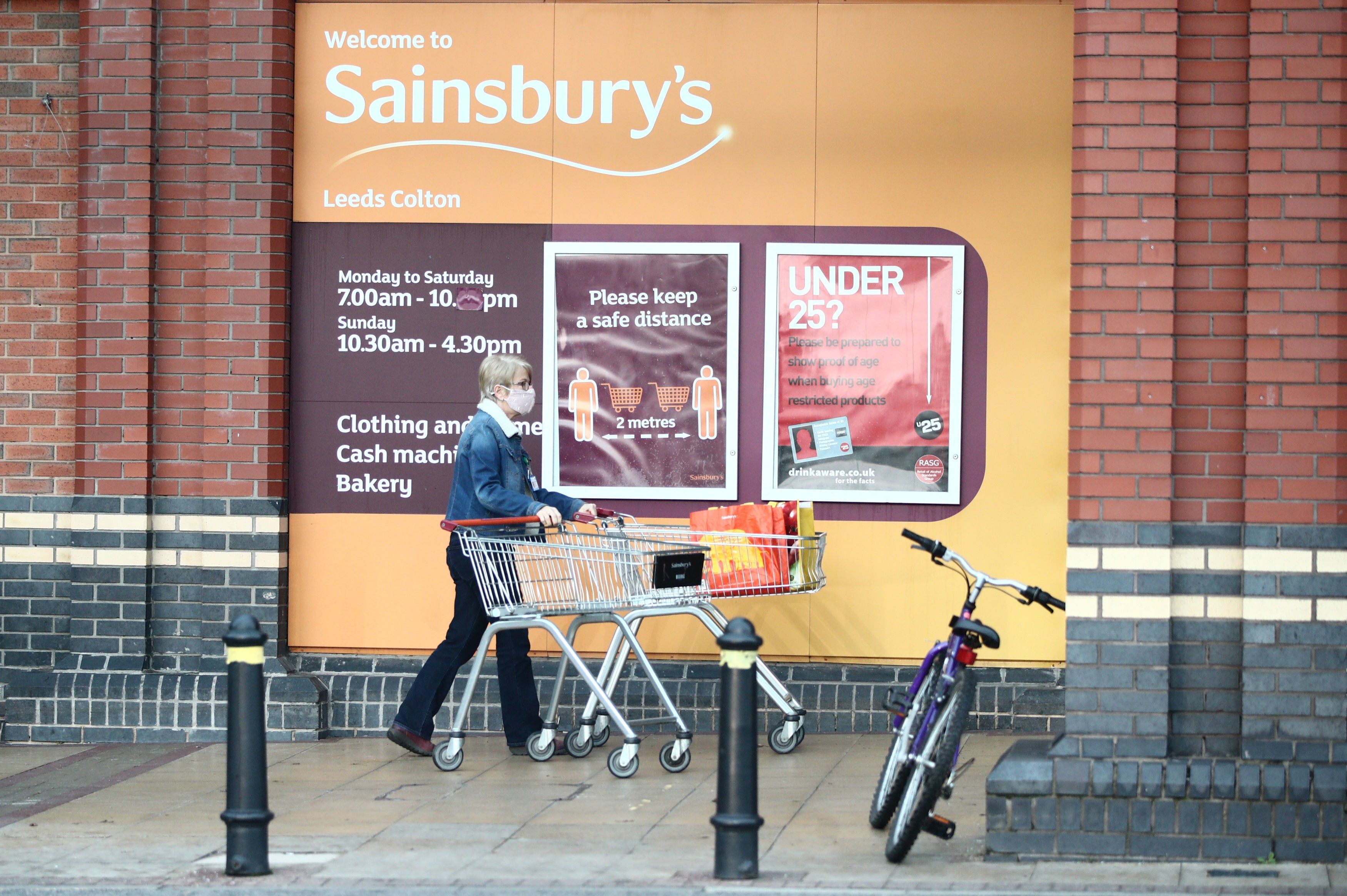Supermarket bosses should look in the mirror and ask: am I proud of what I’m doing?
Not only were they allowed to stay open during the pandemic, when independents had to close and businesses went bust, but the big supermarkets also benefitted from the business rates holiday, writes Chris Blackhurst


This week, I needed a greeting card to send to a relative. Normally, I would go to the local gift shop that has a good selection. Shut. Likewise, the book shop that also sells cards.
I popped into Sainsbury’s and while their choice was dismal they had one that would do. Mark that up as another bit of revenue for the supermarket giant selling “essentials” while the independents that make their living from “non-essentials” are fighting for their lives.
This would be the Sainsbury’s that is refusing to pay anything back to the public purse having enjoyed a business rates holiday while at the same time cashing in on the fact they’ve remained open throughout the pandemic while other, less fortunate, retailers have been forced to close.
In all, the supermarket chains have benefitted to the tune of more than £1bn from the relief, not to mention the massive boost in sales. Across the road from my local Sainsbury’s is an Indian restaurant. Its lights are off, the door is locked. Similarly, the pub. Nothing doing there. Meanwhile, Sainsbury’s has continued to sell ready Indian meals and alcohol. All those diners and drinkers didn’t just stop – they indulged in their favourite curries and beers at home, courtesy of Sainsbury’s and its fellow supermarkets.
Along with the online sellers, they’re the winners in this crisis. There’s no doubt who the losers are – all those bars, cafes, restaurants, shops that have not been able to trade. Worse, they’ve had to watch as their customers go elsewhere.
Do the supermarkets feel any guilt, any moral obligation to repay? What do you think? The argument was made to me by one of their biggest City supporters that it’s not so simple – they’ve had corona costs to absorb. Sainsbury’s, he singled out, had racked up £60m extra on Perspex screens alone. The average large store has 20 tills and they’ve each been kitted out in protective barriers. Then there’s the masks and sanitiser stations and the marshalling and the social distancing signage to take into account.
Blimey, listening to him I felt the urge to weep and to dip into my pocket and find some loose change for Tesco, Sainsbury’s, Morrisons et al. I’d no idea it was so tough. There I was, imagining they were basking in a nice unexpected earner, courtesy of the government’s decision to take out the competition.
I was only basing my view on what I’d seen with my own eyes, how the Sainsbury’s was doing steady business from early in the morning until late at night every day of the week, while all around the other shops and outlets were in darkness. Clearly, my eyes must have been deceiving me. My own experience, with the card and with other items, was also flawed.
These are corporate names, don’t forget, that go out of their way with their advertising and marketing to remind us just how caring and concerned they are
The results don’t lie, however. They show the supermarket groups have been raking it in. To ram home the message of just how well they’ve been doing and to further rub the noses of the owners of the shuttered “non-essential” shops in it, they’ve been handing out money – not back to the government but to their shareholders in the form of dividends.
They’re doing this as other companies like Howden, the kitchen supplier, is sending back the £22m it received from the furlough scheme and £8m in business rates that were waived. This, from a firm that suffered in the first lockdown as all its depots were obliged to cease trading.
I’m all for businesses prospering and profiting, but I also want them to behave ethically and responsibly. The best brands, those that receive the public’s affection and respect, are those that act properly. Being seen to be greedy, especially at a time when so many are suffering, when the economy is so stretched, is inexcusable.
These, too, are the identical bricks and mortar chains that moan like mad about the special treatment meted out to the digital giants. They’d like to see the business rates system reformed completely and the playing field made more even. Well good luck with that. They’ve shown they do not deserve to be listened to. Why should a politician struggling to deal with a monumental emergency, desperate for any cash they can lay their hands on, pay any attention to folk who gaily take public money while writing large cheques to their shareholders?
One argument I heard was that OK, maybe the supermarkets should not have received the business rates holiday in the first place, but they did, and they cannot now be expected to pay anything back. What is theirs is theirs, in other words. Nice.
These are corporate names, don’t forget, that go out of their way with their advertising and marketing to remind us just how caring and concerned they are, how they want to help people. They’ve very good at saying it; less convincing at doing it.
They fail the mirror test: their bosses should take a look at themselves and ask, do I like what I see, am I proud of what we’re doing? They need to answer it, honestly, without corporate spin and weaselly self-justification. If there isn’t a mirror available, they could stand in the high street, any high street, and compare their queues with the desolation elsewhere. Shame on them.




Join our commenting forum
Join thought-provoking conversations, follow other Independent readers and see their replies
Comments